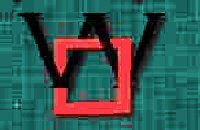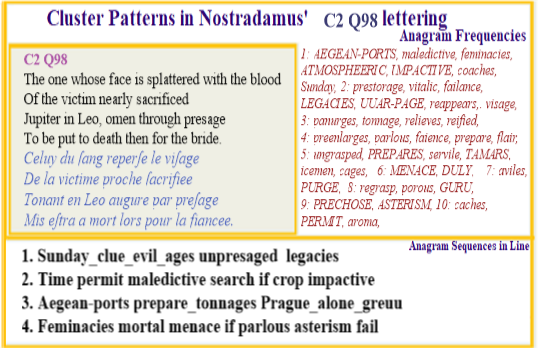 Analyses of all verses
Analyses of all verses
|
 Web Site
Web Site |
 All
Sefirots All
Sefirots |
Nostradamus C2 Q98: The followers of signs seed the war against the superape.
Copyright: Allan Webber, December 2015
![]()
 One of the major focal points for understanding this verse requires
the knowledge that Francois Rabelais was someone well-known to
Nostradamus and so an anagram for
Panurges
(u ſang rep)
is no surprise.
One of the major focal points for understanding this verse requires
the knowledge that Francois Rabelais was someone well-known to
Nostradamus and so an anagram for
Panurges
(u ſang rep)
is no surprise.
The following passage from Rabelais' novel Gargantua and Pantagruelis widely recognised as satirising for those who follow without question and it is this that helps define the intent of the current verse.
Suddenly, I do not know how, it happened, I did not have time to think, Panurge, without another word, threw his sheep, crying and bleating, into the sea. All the other sheep, crying and bleating in the same intonation, started to throw themselves in the sea after it, all in a line. The herd was such that once one jumped, so jumped its companions. It was not possible to stop them, as you know, with sheep, it's natural to always follow the first one, wherever it may go.
.....Francois Rabelais,Quart Livre, chapter VIII
The second line of the next verse
(C2 Q99) contains a composite anagram for
Gargantua and Patagruel
(Par agent Gaul) the name of
this novel by Rabelais. Taken together with the
word augur
appearing in both there is good reason for believing the two verses
are part of the same thread.
In the current verse there is another common theme dealing with ports and the materials they hold. Other parts of text and anagrams produce a tale of a slaughter performed only because someone believes the 'signs' are telling them that must be done. This theme then evolves into the manner in which each of these people are saved. This produces a tale that fits closely to that found in many nearby verses about the evolution of the 22nd century superapes, their capture and near extinction.
In the current verse there is another common theme dealing with ports and the materials they hold. Other parts of text and anagrams produce a tale of a slaughter performed only because someone believes the 'signs' are telling them that must be done. This theme then evolves into the manner in which each of these people are saved. This produces a tale that fits closely to that found in many nearby verses about the evolution of the 22nd century superapes, their capture and near extinction.